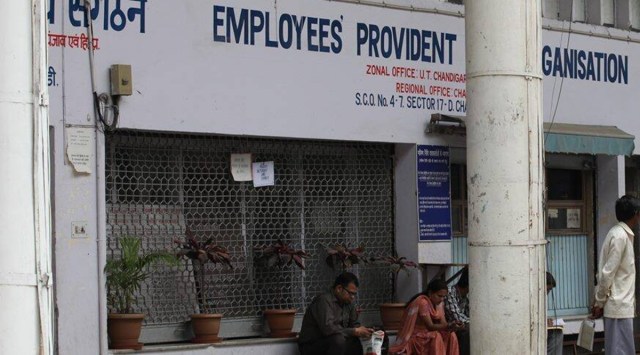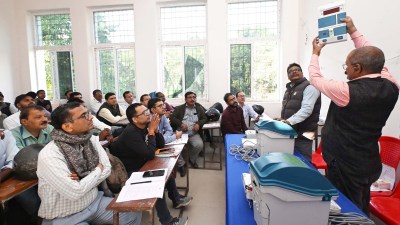The Central Board of Trustees of the Employees’ Provident Fund Organisation (EPFO), in its two-day meeting ending Tuesday, discussed steps needed to resolve issues related to the joint option form by employees and employers, along with problems being faced by senior citizen pensioners who are opting for higher pensions linked to actual salaries.
Some board members raised concerns about linking details of pensioners who may have moved to other regions or for whom the employer may have shut business and the requirement to pay the balance amount by EPF subscribers if they opt for the higher pension.

Labour and Employment Minister Bhupender Yadav said the government is committed to implementing the decision of the Supreme Court on the issue of higher pensions. “There was a detailed discussion on this issue (higher pension related to the Supreme Court judgment) in the CBT meeting. We will fully comply with the apex court’s order…the necessary notifications have been brought out. We are committed to implementing it fully,” he said.
Story continues below this ad
Though the financial impact of higher pension payouts was not discussed in the meeting, one of the main concerns was the issues faced by senior citizen pensioners. The board discussed that some senior citizen pensioners may have moved to other regions away from their workplace, and the companies may not have the data for them to choose a joint option with their employer to opt for the higher pension.
“It was discussed that those eligible after the SC judgment need to be paid. The process has to be made simpler, especially for joint declarations. It was also discussed that those who would have retired in 2014, would be of age 67-68 years now, and they might have migrated to different places, so it might be tough for them to provide a joint option with their employer for higher pension. Also, corporates are expected to maintain data for 5-7 years, so 2014 data may not be available for many such pensioners. So these issues have to be resolved,” KE Raghunathan, CBT Member and employers’ representative, said.
The higher-payments applications will be scrutinised in detail after the May 3 deadline. “It is not going to be an easy process. How will records be accessed for those companies which have closed…applications will now be scrutinised after the deadline, how many are eligible, and how many are not eligible. A committee might get formed to look into these matters,” Harbhajan Singh Sidhu, a CBT member and employees’ representative, said.
Those who opt for the higher pension option would be required to either shift some of their provident fund amount to pension side or deposit the balance amount to kickstart the pension payouts, which will be a long-drawn process, Board members said. “For the higher pension, the employee has to get approval from the employer also and also would be required to pay the dues. Those who get the option, they would be required to deposit money, which would be in huge amounts…it is under question,” Dilip Bhattacharya, CBT member representing employees, said.
There were also protests by a group of EPF subscribers demanding enhancement of the minimum pension of Rs 1,000. “A hike in the minimum pension was discussed in 2019. Now it’s 2023, but nothing has been done for the enhancement of the minimum pension,” a CBT member said.
Story continues below this ad
This is the first CBT meeting where a status note on pension has been discussed after the EPFO allowed a window till May 3 for the subscribers of the Employees’ Pension Scheme to opt for the higher pension linked to actual salaries. A high actuarial deficit in the EPS reflecting the gap between the net present value of contribution and benefits, and a progressive increase in the number of pensioners going forward, are two key concerns the EPFO is grappling with as it attempts to implement the higher pension option for subscribers.
Those who opt for the higher pension option would be required to either shift some of their provident funds amounts to the pension side or deposit the balance amount to kickstart the pension payouts, which will be a long-drawn process, Board members said. “For the higher pension, the employee must also get approval from the employer and would be required to pay the dues. Those who get the option, would be required to deposit money, which would be in huge amounts…it is under question,” Dilip Bhattacharya, CBT member representing employees, said.
There were also protests by a group of EPF subscribers demanding an enhancement of the minimum pension of Rs 1,000. “A hike in the minimum pension was discussed in 2019. Now it’s 2023, but nothing has been done for the enhancement of the minimum pension,” a CBT member said.
It was the first CBT meeting where a status note on a pension was discussed after the EPFO allowed a window till May 3 for the Employees’ Pension Scheme subscribers to opt for the higher pension linked to actual salaries.
































